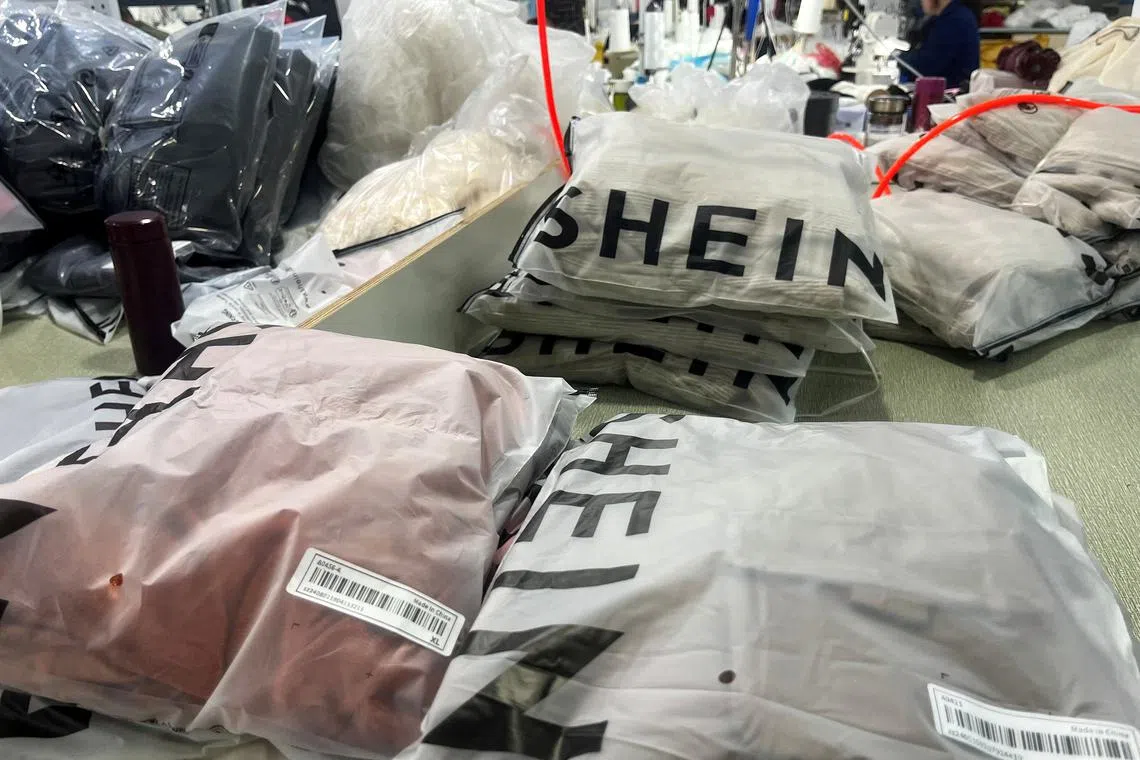End of US low-value package tariff exemption is permanent, Trump officials say
Sign up now: Get insights on Asia's fast-moving developments

US Customs has estimated that the number of packages claiming the de minimis exemption jumped nearly tenfold from 139 million in fiscal year 2015 to 1.36 billion in fiscal 2024.
PHOTO: REUTERS
WASHINGTON – The US tariff exemption for package shipments valued under US$800 (S$1,030) ends permanently on Aug 29, with a six-month transition period under which postal service shippers can opt to pay a flat duty of US$80 to US$200 per package depending on the country of origin, Trump administration officials said.
US Customs and Border Protection (CBP) will begin collecting normal duty rates on all global parcel imports, regardless of value, after 12.01am Eastern Daylight Time (12.01pm Singapore time) on Aug 29.
The move broadens the Trump administration’s cancellation of the de minimis exemption
“President Trump’s ending of the deadly de minimis loophole will save thousands of American lives by restricting the flow of narcotics and other dangerous prohibited items, and add up to US$10 billion a year in tariff revenues to our Treasury,” White House trade adviser Peter Navarro told reporters.
“This is a permanent change,” said a senior administration official, adding that any push to restore the exemptions for trusted trading partner countries was “dead on arrival”.
The de minimis exemption has been in place since 1938 and was raised from US$200 to US$800 in 2015 as a means to foster small business growth on e-commerce marketplaces.
But direct shipments from China exploded after President Donald Trump raised tariffs on Chinese goods during his first term, creating a new direct-to-consumer business model for e-commerce firms Shein and Temu.
Many of these packages entered without screening, and the Trump administration has also blamed the exemption for allowing fentanyl and its precursors to flow into the US.
CBP has estimated that the number of packages claiming the de minimis exemption jumped nearly tenfold from 139 million in fiscal year 2015 to 1.36 billion in fiscal 2024.
A second senior Trump administration official said that CBP has collected more than US$492 million in additional duties on packages shipped from China and Hong Kong since their exemptions were eliminated on May 2.
The official said that full tariff rates will apply to all packages shipped by express carriers such as FedEx, United Parcel Service and DHL, with the firms collecting the duties and processing the paperwork.
Foreign postal agencies can opt to collect and process the duties based on the value of the package contents, or opt for the flat rate method by collecting a flat tax based on Mr Trump’s “reciprocal” tariff rates currently in place on goods from the country of origin.
Based on CBP guidance issued on Aug 28, parcels would be charged US$80 from countries with Trump-imposed duty rates below 16 per cent, such as Britain and the European Union; US$160 from countries with rates between 16 per cent and 25 per cent, such as Indonesia and Vietnam; and US$200 from countries above 25 per cent, including China, Brazil, India and Canada.
But postal services must shift to full “ad valorem” duty collection based on the value of the shipments by Feb 28, 2026, the second official said.
This official acknowledged that some foreign postal services have suspended mail to the US, but said the administration was working with foreign partners and the US Postal Service to minimise disruptions.
The official said that Britain, Canada and Ukraine have confirmed that their shipments are continuing. REUTERS


